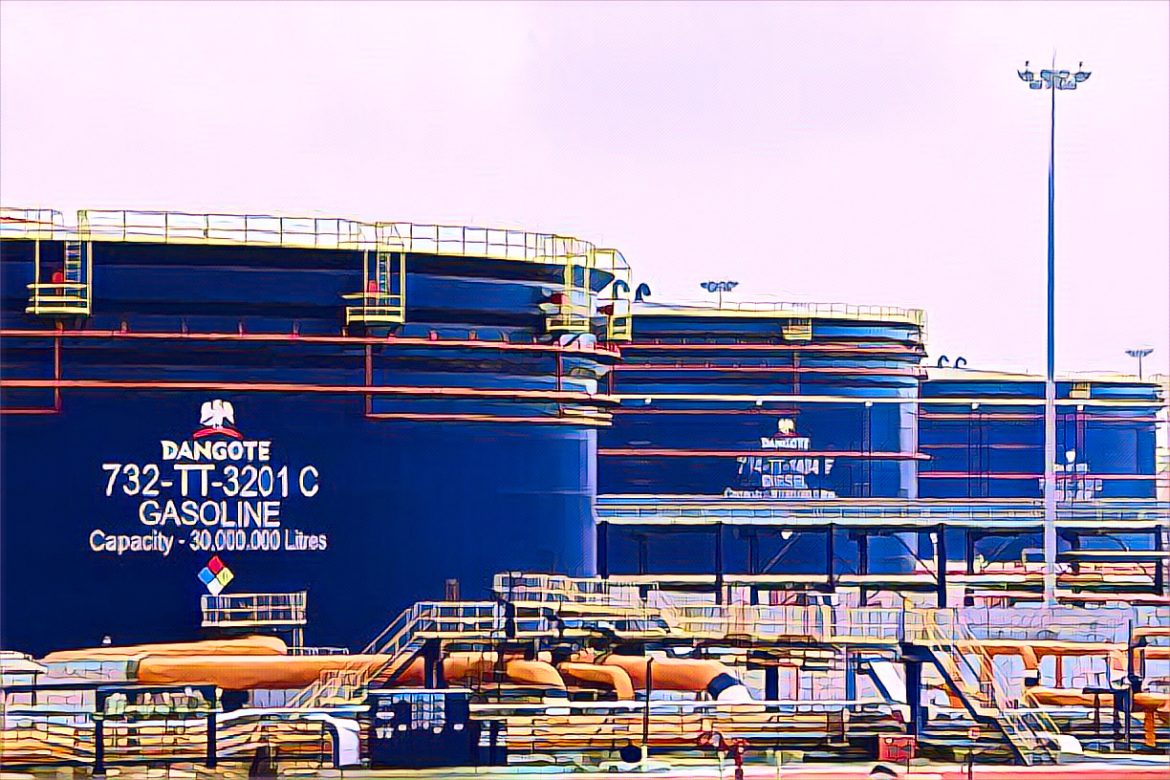The long-awaited Dangote Refinery is set to commence petrol production in August, following the resolution of crude supply issues. This announcement marks a significant milestone for Nigeria’s oil and gas sector, promising to transform the country’s refining capacity and reduce dependence on imported fuel.
Aliko Dangote, chairman of Dangote Group, confirmed the news during a press briefing on Monday. “We have resolved all outstanding crude supply challenges and are on track to begin petrol production next month,” he stated. This development comes after years of anticipation and investment in what is set to be Africa’s largest refinery.
The Dangote Refinery, located in the Lekki Free Zone near Lagos, is designed to process 650,000 barrels of crude oil per day. Once operational, it will significantly boost Nigeria’s refining capabilities, potentially turning the country into a net exporter of refined petroleum products. This shift is expected to save Nigeria billions of dollars annually in fuel imports and stabilize the domestic fuel market.
The resolution of crude supply issues involved extensive negotiations with both local and international suppliers. Dangote highlighted the collaborative efforts that made this possible, emphasizing the importance of a stable supply chain for the refinery’s operations. “Securing a reliable crude supply was critical. We have worked closely with our partners to ensure a steady flow of raw materials,” he added.
Industry analysts have welcomed the news, noting the refinery’s potential to impact not just Nigeria, but the entire West African region. “The commencement of production at the Dangote Refinery is a game-changer for the oil and gas industry in Africa,” said Ayo Teriba, an economic analyst. “It will enhance energy security, create jobs, and foster economic growth.”
The refinery’s petrol production is expected to address chronic fuel shortages in Nigeria, which have often led to long queues and high prices at filling stations. By increasing local production, the Dangote Refinery aims to make fuel more accessible and affordable for Nigerians. The project is also anticipated to create thousands of direct and indirect jobs, stimulating economic activity in the region.
Despite the optimism, some challenges remain. Ensuring consistent quality in petrol production and maintaining an uninterrupted supply chain are crucial for the refinery’s success. Additionally, global market dynamics, such as fluctuating oil prices and geopolitical tensions, could impact operations.
The Nigerian government has expressed strong support for the refinery, recognizing its potential to drive economic development. “The Dangote Refinery is a monumental project that aligns with our vision of self-sufficiency in petroleum products. We are committed to supporting its operations and ensuring its success,” said Timipre Sylva, Nigeria’s Minister of State for Petroleum Resources.
The refinery’s launch is a significant step towards achieving Nigeria’s goal of becoming a major player in the global oil and gas industry. By reducing the need for fuel imports, the country can redirect funds towards other critical areas of development, such as infrastructure and education.
As the Dangote Refinery prepares to start production, the focus will be on delivering its promised benefits to the Nigerian economy and beyond. The successful operation of this mega-project could set a precedent for future investments in local refining capacity across Africa.
Source: Tribune Online


